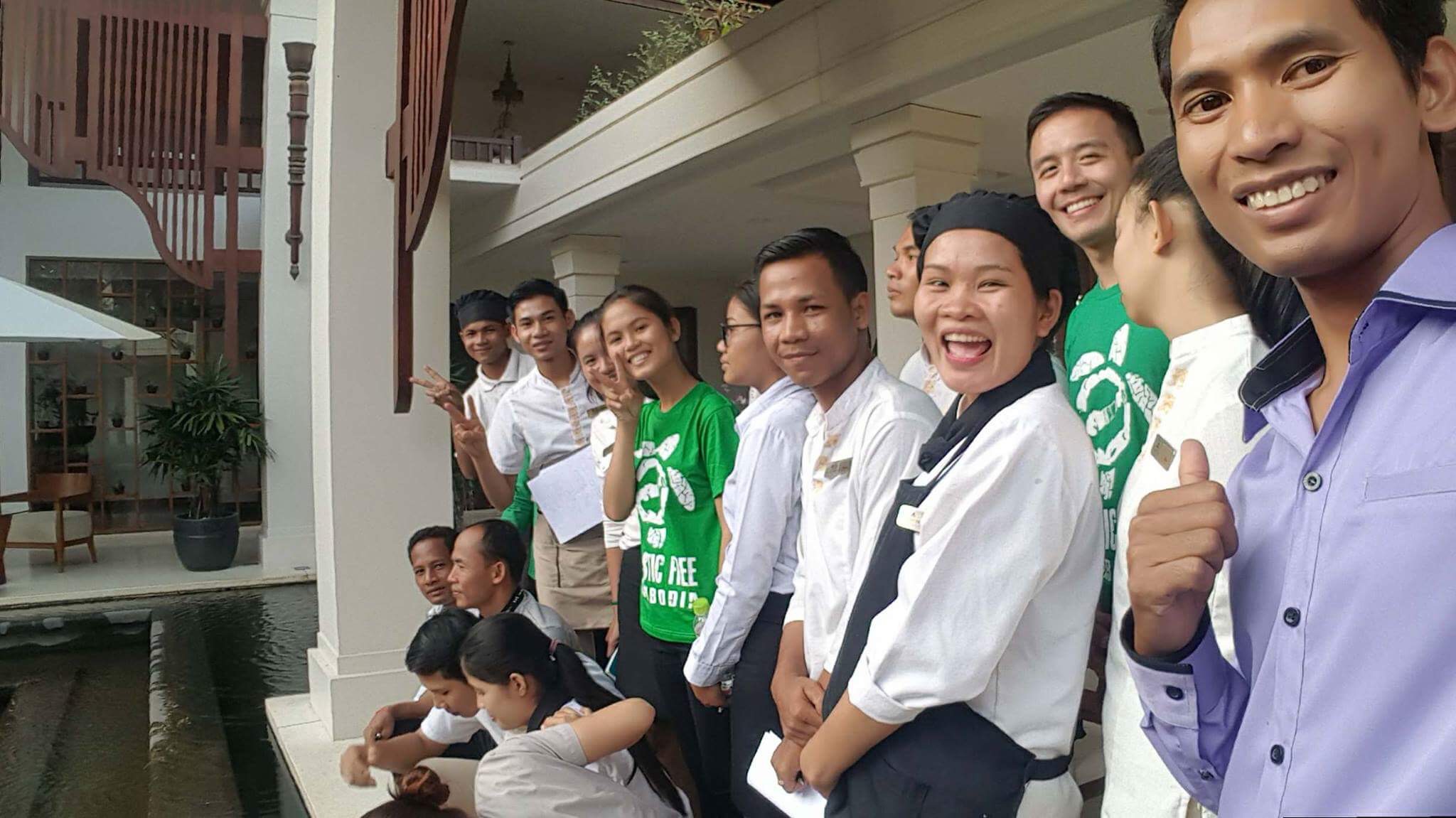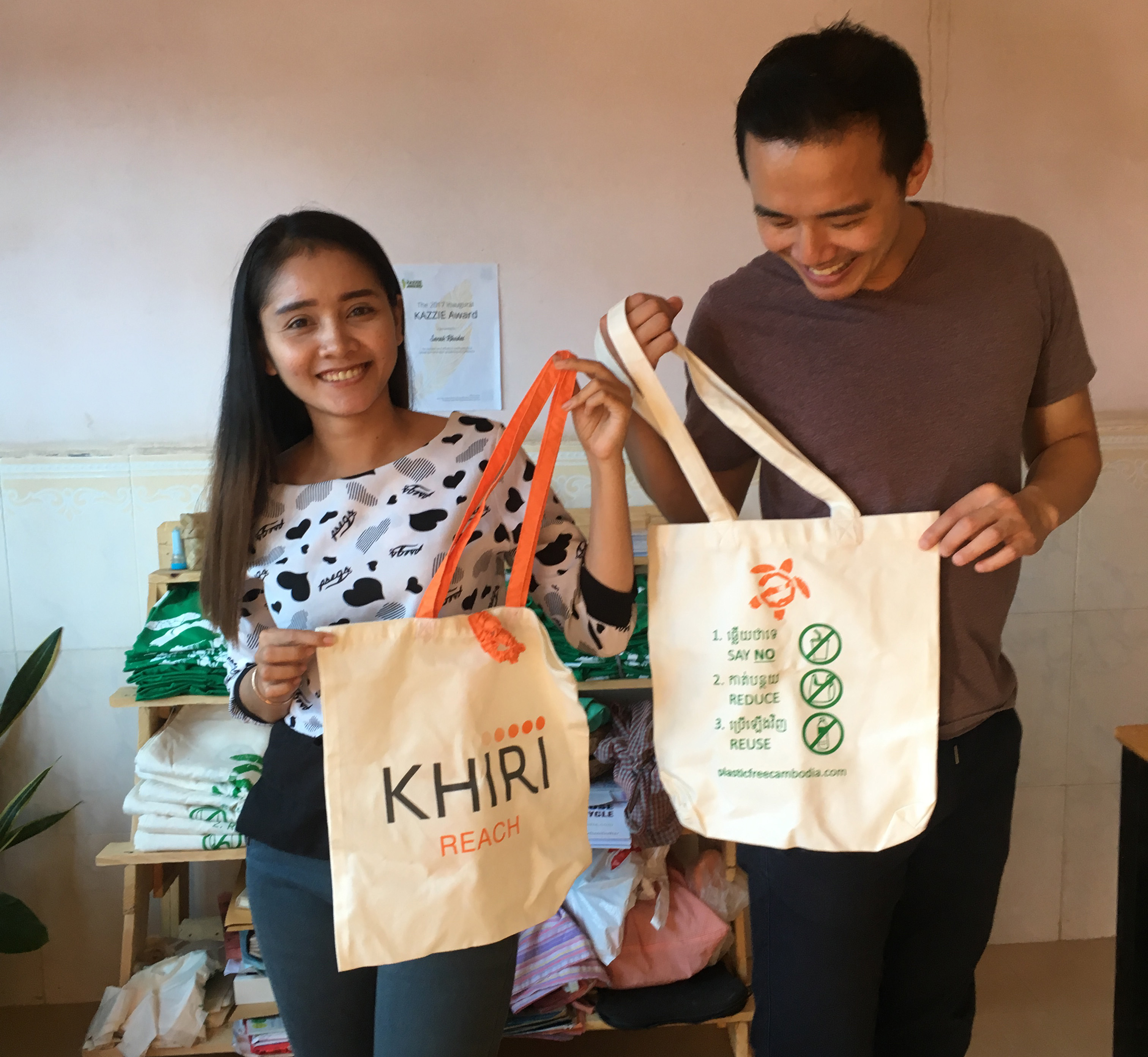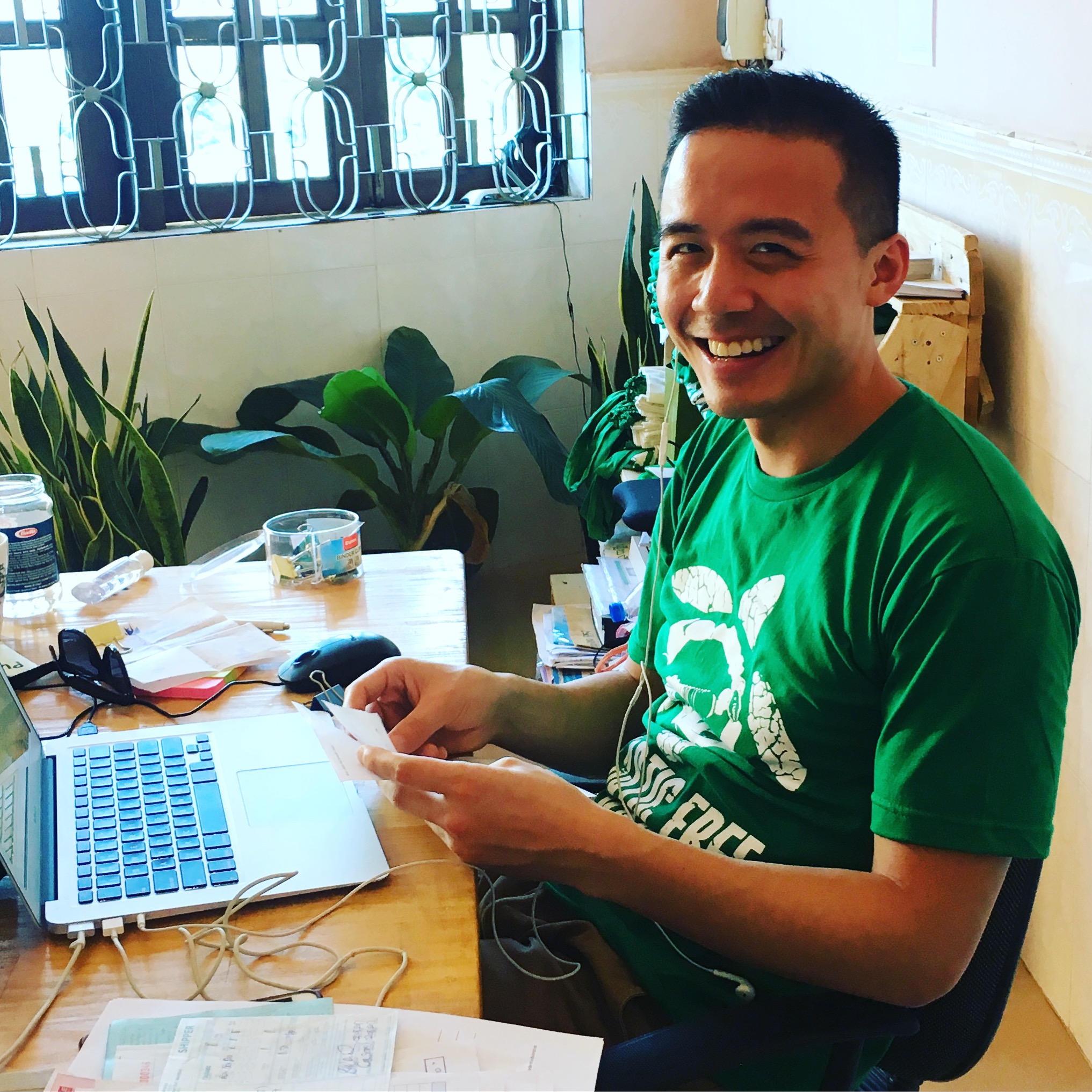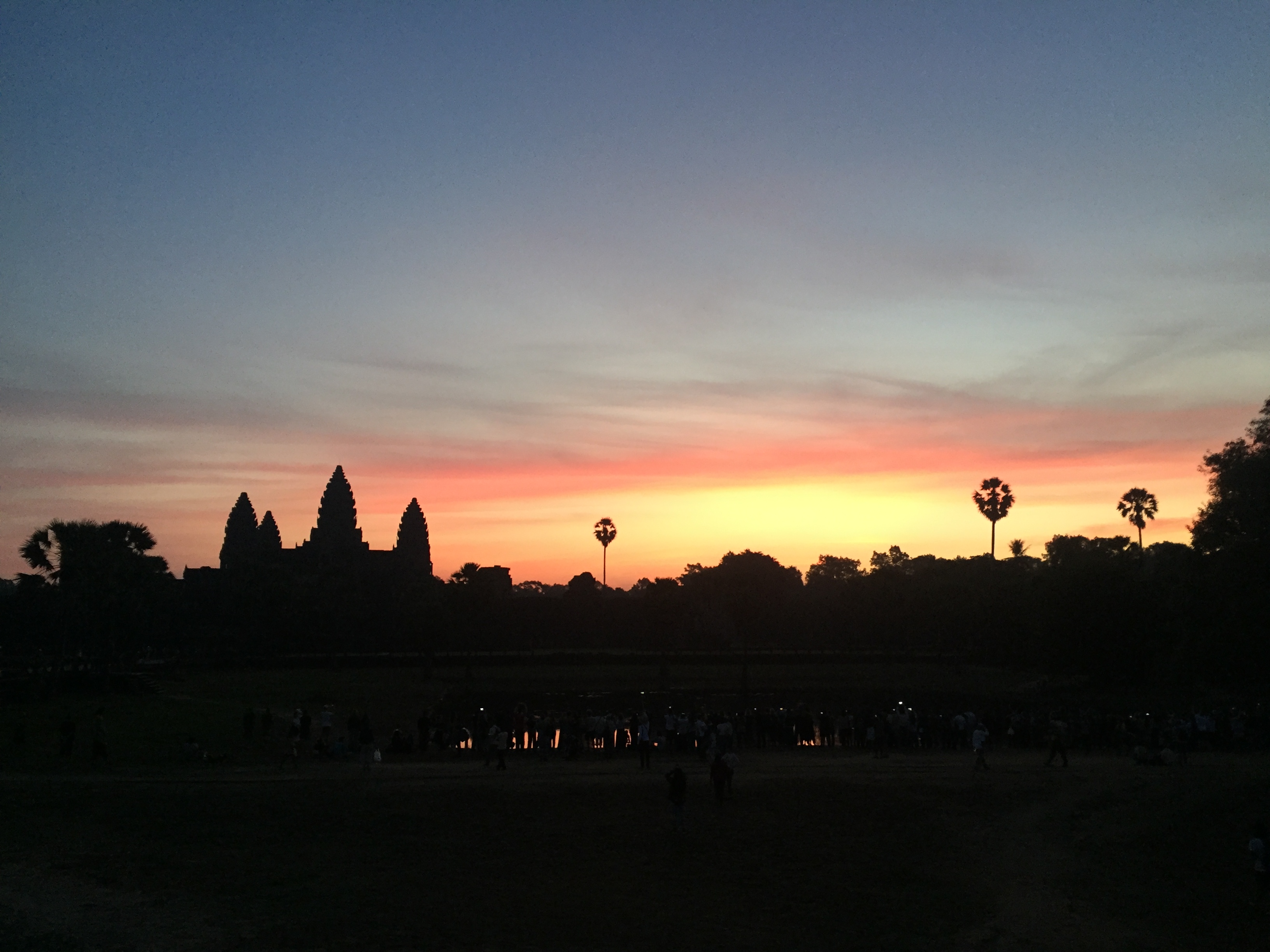My Journey with Plastic Free Cambodia (PFC) by Ming Ho
Mission to Cambodia
Siem Reap, Cambodia. How did I end up here? Over the years, I volunteered in several different parts of the world from Ghana to Kenya to the Dominican Republic, doing school-building projects and microfinance work, and teaching. While I enjoyed each of my experiences and grew immensely as a person, I often returned to Canada feeling like I could have done something more. I wanted to do more. A few friends told me about an organization called Accounting for International Development (AfID), which sent accountants to many different parts of the world to help businesses and non-profit organizations improve their financial management capacity. As a trained accountant, I thought this opportunity would be right up my alley. I got in contact with AfID, and in less than a month, I was on a plane heading for Siem Reap, Cambodia. I was going to volunteer with Plastic Free Cambodia for five weeks.

Plastic Free Cambodia
Although I wanted to make an impact using my accounting and finance knowledge, I also wanted to partner with an organization that had a meaningful mission. Plastic Free Cambodia was exactly what I was looking for. As PFC’s website puts it, “Plastic Free Cambodia is working to reduce the use of single-use plastics in order to create a healthier community and environment.” It was clear when I landed in Cambodia that plastic was a big issue in the country. Strewn along the streets and rivers were piles of rubbish and plastic – plastic bottles, plastic containers, and plastic bags. Recycling, something I had taken for granted in the western world, was not common in Cambodia nor was it the solution. The solution was reducing plastic-use.
Working with Numbers
When I arrived at PFC, I hit the ground running, working with Sarah Rhodes, the founder of PFC, and the rest of the PFC team to sort through all of the organization’s financial records. In the weeks I spent with PFC, I set-up accounting processes for revenue, expenses, and inventory. As well, I helped to record all of the transactions for the organization’s Siem Reap, Phnom Penh, and Battambang divisions. Faced with the challenge of sifting through notes on scrap paper, faded invoices, and transactions without invoices, I knew I had to be vigilant and critical of every piece of supporting documentation to ensure that I was recording transactions accurately and reflecting the true financial position of the company. Luckily, after four weeks with PFC, I was able to successfully update the organization’s accounts and migrate all of the financial data onto an online cloud-based accounting system. I was also able to mentor PFC’s accountant to maintain the procedures, processes, and records that I had set-up.


Personal Growth
Through my volunteer work with PFC, I was exposed to many aspects of the organization’s operations outside of accounting and finance – the content and service PFC was providing to businesses and schools across Cambodia. I always thought I was an environmentally conscious individual. Growing up, I was taught to recycle plastic and compost food. I always did my part to keep the planet clean. However, I soon realized I was approaching plastic the wrong way. Why recycle plastic when you can eliminate or reduce plastic? I still had a lot to learn. Sarah introduced me to various products that could be used as substitutes for plastic, such as bio-degradable garbage bags made from cassava plants, bio-degradable takeaway containers and utensils, and bamboo straws. More than anything, during my trip, I realized the importance of making plastic reduction a habit – a habit, which includes carrying reusable water bottles, refusing plastic straws, and avoiding styrofoam takeaway containers by eating in rather than taking out. It was clear to me the impact these habits could have on the environment if everyone did his or her part. As a touristy area, Siem Reap is a hub for plastic pollution, as plastic water bottles are purchased daily in large quantities by thousands of tourists and chucked in the bin once the water was consumed. It was my mission to reduce my plastic-use in every way possible, and to continue good habits when I returned home.
Work Hard, Play Hard
Outside of the office, I had plenty of time to explore the city and surrounding temples, and also spent a weekend in Phnom Penh. In Siem Reap, the majestic Angkor temples are a sight to behold. I sat by a pond across from the Angkor Wat temple one morning, and waited as the sun crept slowly over the horizon, illuminating the sky around the temple in orange and red hues. It was amazing. In Phnom Penh, I will never forget what I saw in the Tuol Sleng Genocide Museum and Choeung Ek or the “Killing Fields.” The grim history of Cambodia was a reminder to me of how lucky I was to be Canadian. Interestingly, one of my favorite after work activities was sharing drinks with some local taxi drivers (or “tuk tuk” drivers) outside of my guesthouse. The drivers would teach me phrases in their local Cambodian language “khmer,” and while I would like to say that I was an expert at khmer by the end of my trip, I would be lying.

Orkun!